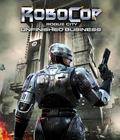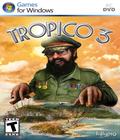As in the original Tropico, the player will again be able to play the role of “El Presidente” taking over the control of a tropical island. You decide whether you want to use your army to secure your power base in the best traditions of corrupt, unscrupulous tyrants everywhere, or alternatively to lead your people to prosperity in your role as generous elder statesman.
Danger lurks on every corner. There are militant rebels planning a Coup d'État for a communistic Junta, while in the background there are two lurking superpowers, the USA and the Soviet Union, who would perhaps prefer a more pliable president in the strategically important island of Tropico!
Q: Will you be able to directly control "El Presidente" in the game, move around the island and talk to people? Will you be able to see the island through the eyes of your president or individual residents?
Haemimont Games: Yes, you are able to directly control El Presidente and make him interact with people and buildings on the island - for example you may send him to calm down a protest, speed up a construction project or decorate a general with a medal. He is also able to address the people from the balcony of his palace.
In similar games you usually watch the maps from far above, rarely zooming down to street level. From a game play point of view this is practical, but you tend to miss all the cool little details that take place at street level. So, in addition to the normal game camera, we are preparing a street-level view that tracks individual units like El Presidente or a selected citizen in a close and personal third-person view. It is not exactly "through the eyes" of the unit, but it comes pretty close.
Q: Will the president have a staff of advisors to help him make the right decisions?
Haemimont Games: El Presidente is a man that likes to keep the power in his own hands and do things by himself and will continue to do so for now. We seriously considered having a cabinet of ministers or appointing particular citizens at key positions. Following this train of thought we generated a ton of ideas, but in the end we decided that they would shift the focus of the game too much - while the concept for a cabinet of advisors is a cool one, we would like to keep it in our drawer for now.
Q: Will a player's chosen background/rise to power/etc. play a greater role in this game?
Haemimont Games: You are still able to customize the background of El Presidente, the way he seized power, his qualities and flaws. The impact of these decisions is roughly the same as it was in Tropico 1 and Paradise Island, but the number of available options is greater than those in Tropico and its expansion combined.
Q: Will you be able to peacefully rule your island without ever using intimidation, suppression or violence and if so, what will your options be?
Haemimont Games: You mean that you want to be a politician that is neither corrupt, nor authoritarian, and cares for the wellbeing of his people above all else... Now that wouldn't be very realistic, would it?
Luckily for you, this is only a computer game, where even politicians can be honest, so you are welcome to try to build your very own Tropican utopia. If you manage to keep your people happy, there will be no rebels and coups, and probably everyone will respect you a little better because you never play"dirty". The people would be happy that they finally have found a leader that truly cares about their interests. Keep this thought in mind when you end up on the boat to Florida with an empty briefcase and no money in your Swiss Bank account.
Q: Which consequences will the chosen political system (communism, democracy) have for the player?
Haemimont Games: This is not a straightforward black vs. white decision - El Presidente is a cunning politician and is able to balance democracy and communism, or even pursue them both at the same time. A ruler leaning more towards the ideology of communism will have better relationships with the USSR and the Communist faction, while a democratic society will strengthen the relationship with the US.
Q: Has a lot of thought been given to the kinds of "moral choices" players will need to make as they run their islands? Will this be a fundamental part of the game, with real consequences?
Haemimont Games: We believe that the moral choices are important for the game. However, Tropico is a humorous game as well as being based on moral values and it is perhaps not the best example of democracy or morality in politics.
Let's say you make an election promise to build a cathedral or to provide housing for the homeless. The promise will win you some voters, but it is up to you whether to keep this promise or not. If you don't deliver on it, the same people will vote against you on the next elections.
There are many other moral choices - every "dirty" tactic such as election fraud or assassination of inconvenient citizens brings some kind of consequences that you have to deal with.
Q: Will espionage be a part of the game? Will there be several government agencies (examples from the US: FBI, CIA, NSA, Secret Service, Homeland Security, etc?) How much control will we have over the island's government and law enforcement agencies? What kinds of crimes will take place? How will organized crime, illegal drugs and other illicit activities be handled? How about corruption?
Haemimont Games: If your foreign relations take turn for the worse, US and USSR spies will start various subversive activities on Tropican soil. Your own Secret Police will counter these actions, as well as some Rebel activities.
The player has top-level control over the island government and law enforcement agencies - he can set their work mode and issue various edicts about them, but he is not able to micromanage every action of every policeman. He also decides the course of action in a crisis situation, for example - what to do during a Bomb Threat.
Illegal drugs are not present in the standard campaign. There are several"corrupt" actions you can use, such as election fraud and leaching money from the treasury to your Swiss Bank account. Corruption and organized crime are present as themes in some missions. Furthermore, players are welcome to make and share any kind of scenarios using the Timeline Editor.
Q: Will there be other factions like pirates, smugglers, thieves or guerrillas in the game? Will there be sea battles?
Haemimont Games: Rebels are the only faction living outside the law - they fight against your regime and undertake various guerrilla activities. Sorry, there are no sea battles.
Q: Will you be able to build all structures from the start of the game or will there be a research component in the game to unlock more buildings or improve productivity?
Haemimont Games: Although there is no research, some buildings and upgrades have prerequisites and can't be built immediately. For example, you need a power plant in order to use any building or upgrade that requires electricity. Also, most of the advanced buildings are not available in the first few missions of the campaign.
Q: Will there be a limit for the number of buildings a player can build?
Haemimont Games: There is no hard cap on the number of buildings, although it is possible to run out of building space, especially on the smallest island size. This is intentional - when playing on a small island you have to carefully consider how to use the available space. It should be very hard to run out of space on a larger island size.
Q: Will there be tourism in the game? If so, will there be opportunities to create new/different kinds of tourism? Eco-tourism for example? Maybe rainforests, or having a coral reef in the area, that could either attract divers and researchers to your island (or could that just be shamelessly exploited)? Maybe caves, such as the ones in Jamaica? Or hot springs, like on the Azores? Can foreign celebrities visit our island?
Haemimont Games: Tourism is an important game mechanic and it is possible to focus the whole economy on it and create a tourist paradise. There are several classes of tourists such as eco-tourists and slob tourists. Individual tourists have different preferences and wealth. As the reputation of your island rises, you will attract more and wealthier tourists. Particularly beautiful areas like beaches near coral reefs will be preferable for some tourist attractions. As for foreign celebrities - you can still invite the Pope or some aging American pop singer with the corresponding edicts.
Q: Will you be able to invade other countries with an army, or be able defend your country from a Superpower Invasion? In general, how will combat and conflicts be resolved in the game? Will it be a huge part of the game?
Haemimont Games: In general, Tropico was never a war game and we want to keep it this way. Combat is restricted to skirmishes between rebels and the army, or loyalists and traitors in case of a military coup or uprising. You can send El Presidente to personally shoot some rebels, but the rest of your troops act independently. Both rebels and soldiers try to form groups during battle and coordinate their efforts with their allies as much as possible.
Q: Will there be a variety of military equipment and facilities available besides just regular army troops? For example, will there be tanks?
Haemimont Games: Soldiers use jeeps and the road infrastructure to quickly travel to remote locations. There is no warfare with tanks or other heavy-duty military vehicles - there are plenty of military games that offer this kind of experience and we don't wish to turn Tropico in one of them.
Q: Will there be waste disposal/recycling management in the game so you can keep your island clean?
Haemimont Games: Pollution is produced by industrial buildings and the local population. Most Tropicans don't care very much about it, except those Environmentalists that nobody pays any attention to anyway, but high pollution is a big turn-off for tourists.
There are several ways to reduce pollution - special edicts implementing pollution standards, upgrades, and even the positioning of your industrial buildings can help preserve the pristine environment of your island.
Q: Will the economy remain entirely command-oriented (like in Tropico 1) with the government setting wages, constructing buildings and providing all social services, or will there be any private sector activity at all?
Haemimont Games: Although the command-oriented economy is preserved, privately owned buildings do exist in one or two missions - the player has no direct control over them and can't set parameters such as wages and work mode, but his citizens can work there. Players may use such buildings in their own scenarios.
Kalypso's Tropico 3, developed by Haemimont Games, is scheduled for release Sept. 2009.
More articles about Tropico 3











 As in the original Tropico, the player will again be able to play the role of El Presidente taking over the control of a tropical island. You decide whether you want to use your army to secure your power base in the best traditions of corrupt, unscrupulous tyrants everywhere, or alternatively to lead your people to prosperity in your role as generous elder statesman.
As in the original Tropico, the player will again be able to play the role of El Presidente taking over the control of a tropical island. You decide whether you want to use your army to secure your power base in the best traditions of corrupt, unscrupulous tyrants everywhere, or alternatively to lead your people to prosperity in your role as generous elder statesman.